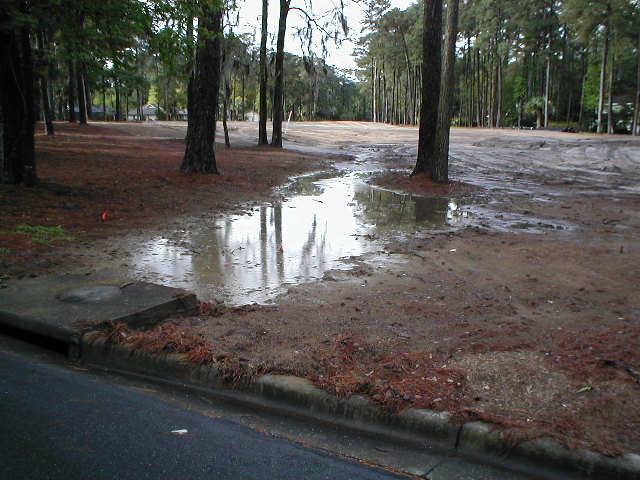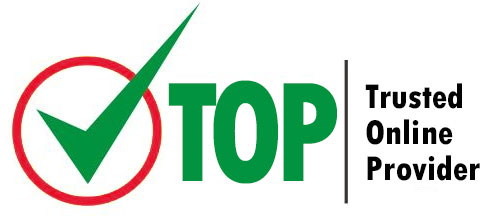Stormwater Management
Stormwater Discharge
Erosion Control
Stormwater Management - Course Descriptions
Stormwater Management During Construction 8 Hrs
This erosion control course has been developed for the Erosion Control Supervisor Responsible for the proper installation, maintenance and inspection of Best Management Practices (BMPs) for the control of erosion and sedimentation at construction sites.
You will be able to:
- describe the process of erosion and sedimentation
- describe the installation requirements for BMPs for erosion and sediment control
- describe BMPs to control sources of pollution on construction sites
- list the duties of the Erosion Control Supervisor
We will cover:
- regulatory Requirements
- the Problem of Erosion and Sedimentation
- best Management Practices for Erosion Control
- best Management Practices for Sediment Control
- materials Handling and Waste Management
Stormwater Discharges and Permits 2 Hrs
Stormwater discharges are generated by runoff from land & impervious areas such as paved streets, parking lots, & rooftops during rainfall and snow events. This runoff often contain pollutants in quantities that could adversely affect water quality. Our stormwater management course covers federal and state regulations to control/prevent stormwater discharge.Federal and state storm water regulations require industrial facilities to take steps to prevent storm water pollution.
All stormwater permits require the development and implementation of minimum control measures (for MS4 stormwater permits) and best management practices (for industrial stormwater permits). This course discusses procedures required for NPDES permit and pollution prevention plans.
When finished you will be able to:
- identify the components and benefits of the national menu of Best Management Practices (BMPs) to reduce and eliminate stormwater pollution including public education, public involvement, illicit discharge detection and elimination, construction, post-construction, and pollution prevention/good housekeeping
- describe the EPA construction general permit requirements
- describe the EPA multi-sector general permit (MSGP)
- discuss the impact of Municipal Separate Storm Sewer System (MS4) permits on municipalities and industrial facilities
- describe the phases of and exclusions from the NPDES stormwater program
- discuss stormwater management best practice case studies
- identify sources of stormwater discharge from industrial facilities
Stormwater Management
Stormwater is a term used to describe water that originates during precipitation events. It may also be used to apply to water that originates with snow melt or runoff water from over-watering that enters the stormwater system. Stormwater that does not soak into the ground becomes surface runoff, which either flows directly into surface waterways or is channeled into storm sewers, which eventually discharge to surface waters.
Stormwater is of concern for two main issues: one related to the volume and timing of runoff water (flood control and water supplies) and the other related to potential contaminants that the water is carrying, i.e. water pollution.
Concerns:
1 History
2 Stormwater pollution
3 Stormwater runoff as a source of pollution
4 Stormwater Management
5 Integrated water management
6 Regulation in the United States
- Federal requirements
- State and local requirements
- Non-point source pollution management
States Served:
Alabama Ala. AL
Alaska Alaska AK
American Samoa AS
Arizona Ariz. AZ
Arkansas Ark. AR
California Calif. CA
Colorado Colo. CO
Connecticut Conn. CT
Delaware Del. DE
Dist. of Columbia D.C. DC
Florida Fla. FL
Georgia Ga. GA
Guam Guam GU
Hawaii Hawaii HI
Idaho Idaho ID
Illinois Ill. IL
Indiana Ind. IN
Iowa Iowa IA
Kansas Kans. KS
Kentucky Ky. KY
Louisiana La. LA
Maine Maine ME
Maryland Md. MD
Marshall Islands MH
Massachusetts Mass. MA
Michigan Mich. MI
Micronesia FM
Minnesota Minn. MN
Mississippi Miss. MS
Missouri Mo. MO
Montana Mont. MT
Nebraska Nebr. NE
Nevada Nev. NV
New Hampshire N.H. NH
New Jersey N.J. NJ
New Mexico N.M. NM
New York N.Y. NY
North Carolina N.C. NC
North Dakota N.D. ND
Northern Marianas MP
Ohio Ohio OH
Oklahoma Okla. OK
Oregon Ore. OR
Palau PW
Pennsylvania Pa. PA
Puerto Rico P.R. PR
Rhode Island R.I. RI
South Carolina S.C. SC
South Dakota S.D. SD
Tennessee Tenn. TN
Texas Tex. TX
Utah Utah UT
stormwater management, erosion control, water resource management, wastewater
Stormwater Management
CDOT-Stormwater Management During Construction
Stormwater Discharges and Permits in Construction
$95.00
$90.00
8.0
2.0
Stormwater can provide a toxic discharge which can enter into a lake, river or coastal water system. As storm water flows or snow melts, it picks up debris, chemicals - such as fertilizers and pesticides - dirt, wildlife excrement, cigarette butts and other pollutants. Learn more about Stormwater Management - Enroll Today!
We Welcome Corporate Accounts!
Stormwater Pollution
It is the relationship between impervious surfaces and surface runoff. Because impervious surfaces (parking lots, roads, buildings, compacted soil) do not allow rain to infiltrate into the ground, more runoff is generated than in the undeveloped condition. This additional runoff can erode watercourses (streams and rivers) as well as cause flooding when the stormwater collection system is overwhelmed by the additional flow. Because the water is flushed out of the watershed during the storm event, little infiltrates the soil, replenishes groundwater, or supplies stream baseflow in dry weather.
Related Courses
8-Hour RCRA Refresher: California
Certified Environmental Specialist
Emergency Planning Community & Right to Know Act
Identifying Your Hazardous Wastes
RCRA 8 Hour Refresher
RCRA in Day-to-Day Operations
RCRA: What the Law Requires
Spill Prevention and Release Reporting 
Spill Prevention, Control, and Countermeasure
The Clean Air Act
8.0
24.0
3.0
4.0
8.0
2.0
4.0
2.0
2.0
2.0
$99.00
$299.00
$75.00
$95.00
$99.00
$99.00
$95.00
$45.00
$45.00
$45.00





